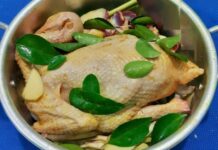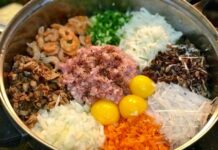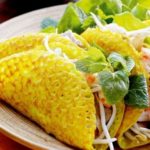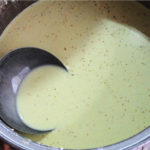Niên fish is an indigenous species to the central region of Vietnam, renowned for its delectable flavor and firm flesh. It is considered one of the region’s most distinctive delicacies, embodying the essence of the mountainous terrain. However, to some, it remains an unfamiliar name. Let’s delve into the world of Niên fish and uncover its unique attributes.
1 What is Niên Fish?
Niên fish belongs to the family of mackerel, characterized by its flat body. Upon reaching maturity, it attains a length of approximately 20 cm, akin to the size of an adult’s thumb. Its body boasts a silvery-white hue, with a greenish back and tiny red spots encircling its mouth. Niên fish thrive in the upper reaches of rivers, favoring rapid currents, and subsist primarily on algae and seaweed.
In Quảng Ngãi, particularly in the mountainous regions of Tây Bồng and Tây Trà, Niên fish attain a larger size, reaching up to 2-3 adult finger widths, resulting in a meatier and firmer texture compared to their counterparts elsewhere.
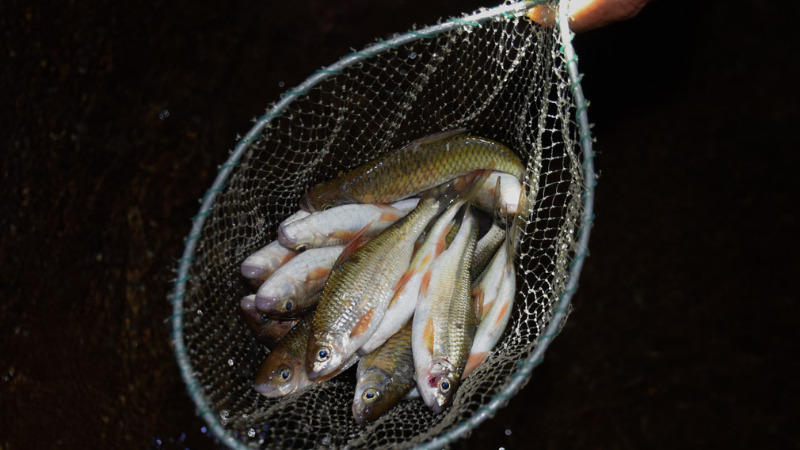 Niên Fish in Quảng Ngãi
Niên Fish in Quảng Ngãi
The spawning season for this fish occurs towards the end of winter and the beginning of spring. During this period, the female fish migrate upstream to lay their eggs, which attach to the rough stones. The hatchlings then embark on their journey downstream, navigating the river currents to begin their lives.
Due to their dwindling numbers, Niên fish have become a specialty in the central provinces, commanding prices ranging from 300,000 to 400,000 VND per kilogram. During festive seasons, such as in 2021, the price of Niên fish soared to approximately 800,000 VND per kilogram.
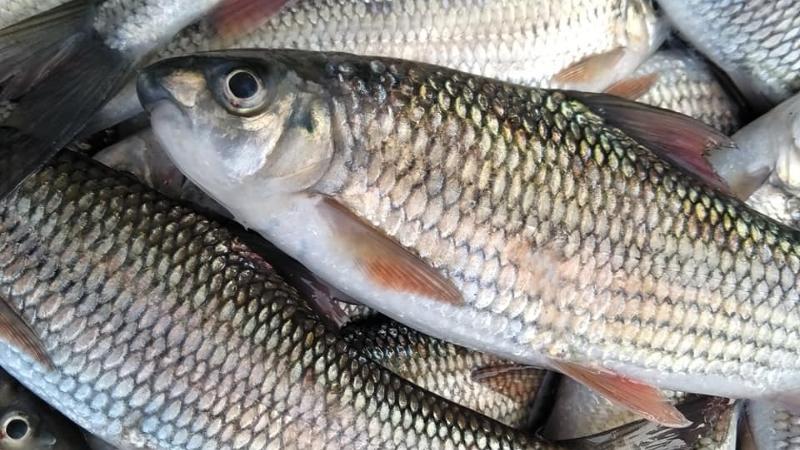 Niên Fish commanding high prices
Niên Fish commanding high prices
2 Niên Fish Preparation
Given their diet of primarily algae and seaweed, Niên fish possess a unique flavor and exceptionally firm flesh. The people of central Vietnam have devised myriad simple yet delectable ways to prepare this fish, some of which are outlined below:
Steamed Niên Fish
Clean the fish and place them in a steamer. Add water until it reaches the level of the fish. Steam for about 10 minutes, then add a few sprigs of cilantro and a dash of fish sauce. Turn off the heat and serve with rice, herbs, and a side of dipping sauce to enhance the natural sweetness of the fish.
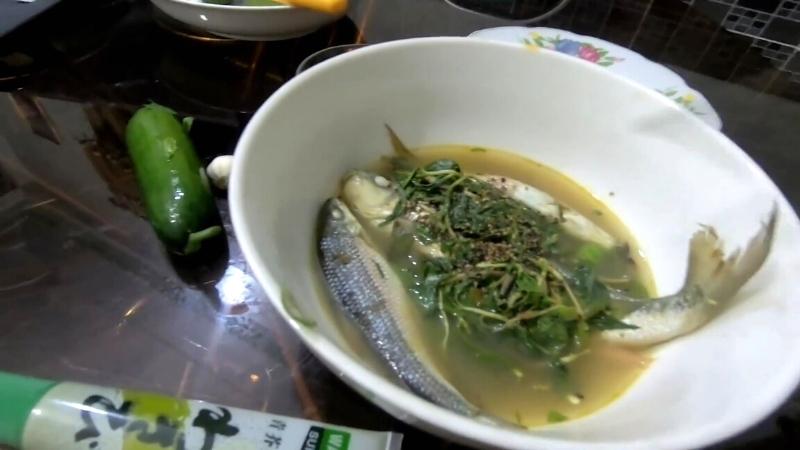 Steamed Niên Fish
Steamed Niên Fish
Grilled Niên Fish
Select fish of similar length, arrange them on a skewer, and grill over hot coals until the skin turns a golden brown. You can either eat the fish by hand, tearing off the flesh, or hold the entire fish and dip it into a savory sauce.
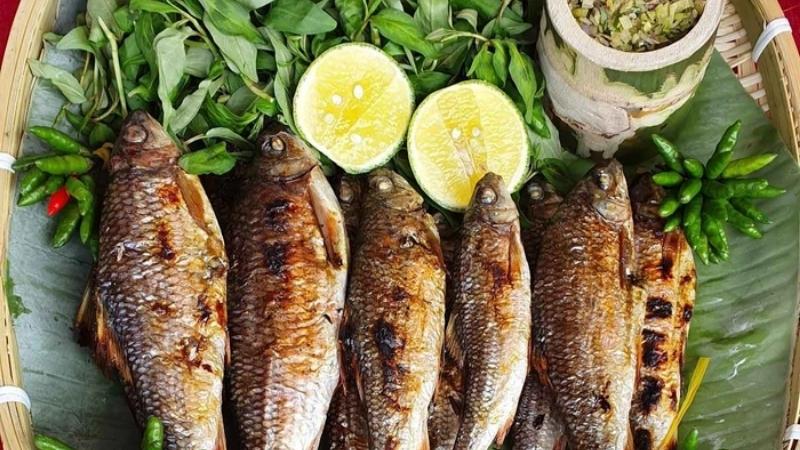 Grilled Niên Fish
Grilled Niên Fish
Fish Intestines
Clean the intestines of the Niên fish and place them in a bowl. Add an egg yolk and a pinch of salt and pepper, then steam the mixture. This unique dish is sure to tantalize your taste buds.
Additionally, there are numerous other ways to prepare this versatile fish, including Niên fish salad, porridge, and curry, all of which have become beloved dishes among the people of central Vietnam.
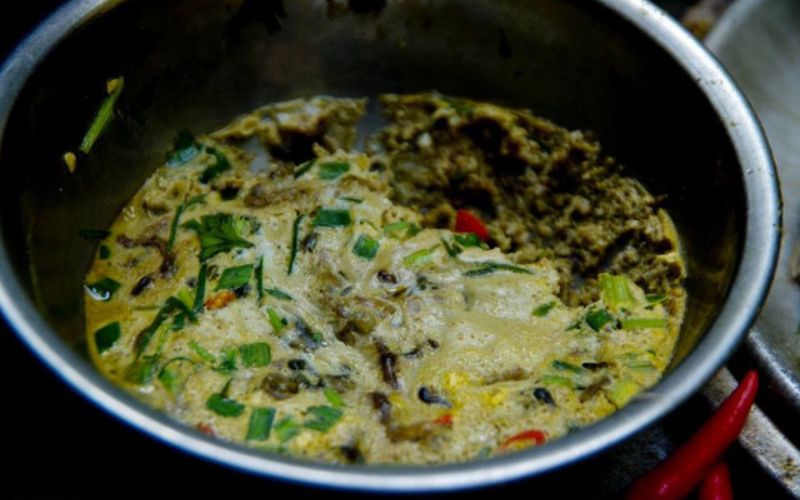 Niên Fish Intestines steamed with egg
Niên Fish Intestines steamed with egg
This article has shed light on the fascinating world of Niên fish, a delicacy native to the central region of Vietnam. We hope you found it informative, and don’t forget to follow us for more intriguing insights!
What is Banh Khoai? How to Distinguish Banh Khoai and Banh Xeo
In Vietnam, a myriad of traditional cakes and regional specialties exist. Have you ever wondered about the unique delicacy called ‘banh khoai’ and how it differs from its cousin, the ‘banh xeo’? Let’s delve into this culinary adventure and explore the distinct characteristics of these tantalizing treats!
The Tasty Tale of Two Regions: Southern and Central Vietnam’s Banh Xeo
The humble Vietnamese pancake, known as ‘Banh Xeo’, is a delightful treat found across Vietnam. You may have heard references to Southern or Central Banh Xeo, but what’s the story behind these names? Let’s explore the differences between these regional variations and uncover why they’ve earned their distinct titles.












